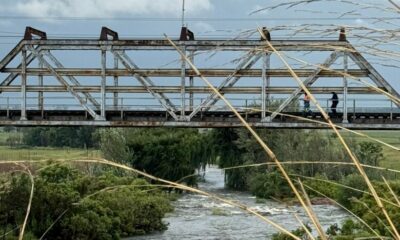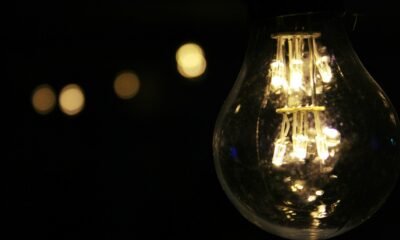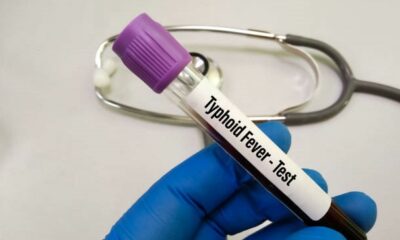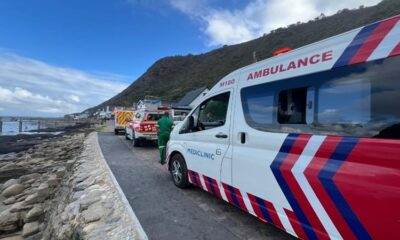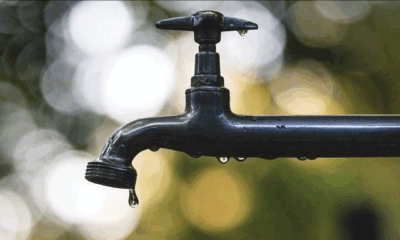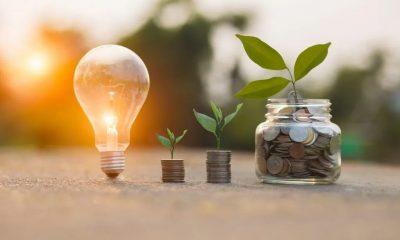Best of Johannesburg
Emergency Water Safety: How to Purify Tap Water in Johannesburg

Johannesburg residents are no strangers to water disruptions, whether due to a burst pipe, flooding, or municipal maintenance. When water service is restored, however, the question arises: is it safe to drink?
If your tap water looks murky, smells unusual, or you’ve received a boil-water notice from authorities, it’s critical to purify the water before use. Contaminated water can carry bacteria, viruses, and parasites that pose serious health risks. In some cases, these organisms cannot be eliminated by simply boiling or filtering.
In this guide, we’ll explore reliable methods to make tap water safe during emergencies in Johannesburg, using practical, trusted techniques that you can apply at home.
Avoid Using Contaminated Water For:
-
Drinking
-
Brushing your teeth
-
Preparing food or washing dishes
-
Making ice or baby formula
-
Washing hands or open wounds
For these activities, always use bottled, boiled, or properly treated water.
Tip: Never use water from radiators, boilers, or heating systems – even in a pinch. It is not safe for human consumption.
Also read: https://www.joburgetc.com/johannesburg/joburg-water-restrictions-2025/
Method 1: Boil Water (Most Effective)
Boiling is one of the most effective ways to kill harmful organisms in water, including bacteria, viruses, and parasites.
Steps:
-
If the water appears cloudy, filter it using a clean cloth or paper towel.
-
Bring the water to a rolling boil and keep it boiling for at least 1 minute (3 minutes at high altitudes).
-
Let the water cool.
-
Store the water in clean, covered containers.
Tip: Boiled water may taste flat. To improve the taste, you can pour it between two containers or add a pinch of salt.
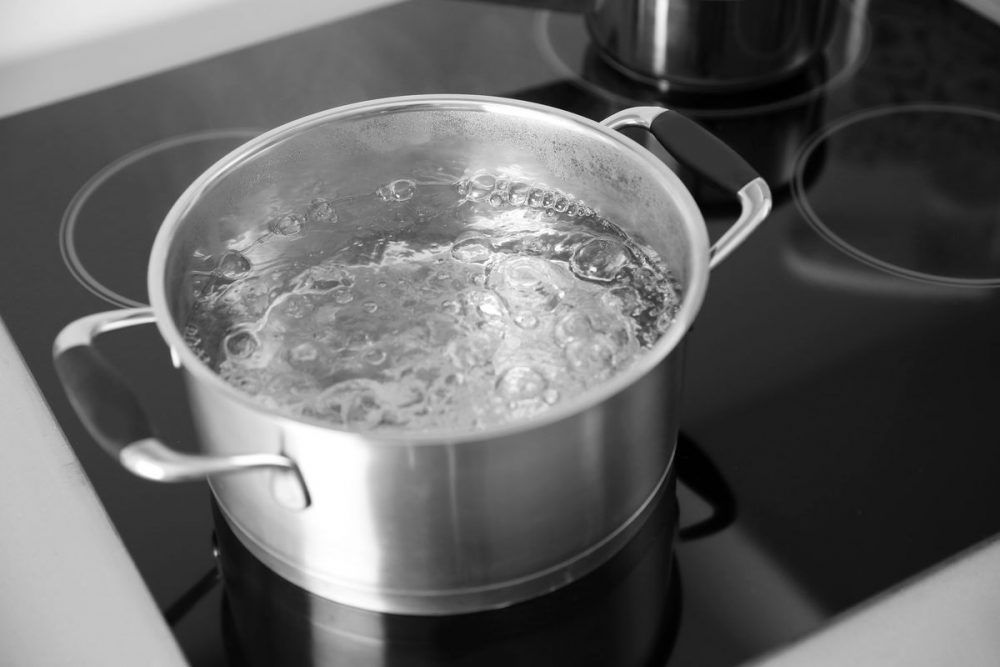
Image 1: Cornwall Standard-Freeholder
Method 2: Use Bleach Disinfection (With Caution)
If boiling isn’t an option, unscented household bleach can be used to disinfect water in emergencies. However, you must exercise extreme caution as the bleach concentration can vary, and using the wrong amounts can be harmful.
Steps:
-
Use only unscented household bleach.
-
Add the correct amount according to local guidelines or instructions based on bleach concentration (typically around 2-4 drops per liter of water).
-
Stir well and let the solution sit for at least 30 minutes before use.
Caution: If you’re uncertain about the correct amount of bleach, opt for other methods or bottled water, especially for drinking or preparing baby formula.
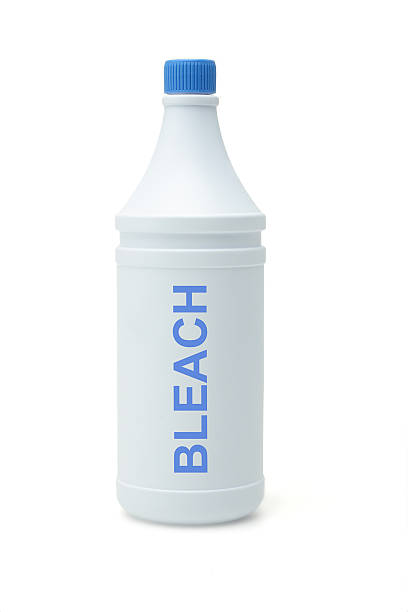
Image 2: iStock
Method 3: Use Water Purification Tablets or Drops
Water purification tablets or drops, such as chlorine dioxide or iodine tablets, can be an effective alternative for treating water. These are available at pharmacies and outdoor supply stores.
Steps:
-
Follow the instructions on the package carefully, as they are designed for specific water volumes.
-
Allow the treated water to sit for the recommended time to ensure effectiveness.
Note: Iodine-based disinfectants may not be suitable for pregnant individuals or those with thyroid issues. Additionally, iodine does not effectively eliminate all parasites, such as Cryptosporidium.
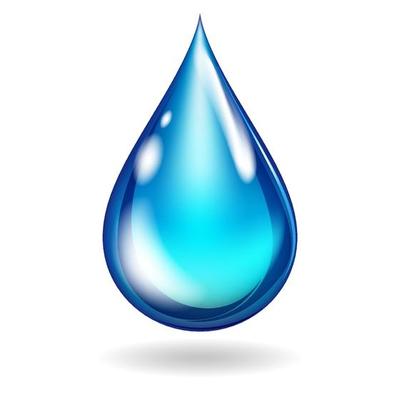
Image 3: Vecteezy
Method 4: Filter Then Disinfect
Portable water filters are useful for removing dirt, debris, and some bacteria, but they do not remove viruses. When filtering, it’s essential to follow up with a chemical disinfectant to eliminate any remaining bacteria and viruses.
Steps:
-
Use a filter with a pore size of 1 micron or smaller to remove parasites like Giardia.
-
After filtering, treat the water with chlorine drops or purification tablets to kill any remaining pathogens.

Image 4: Harvard Health
Method 5: UV Light Treatment
UV light devices are effective in killing bacteria and viruses in clear water but are not effective with cloudy or murky water. If you have access to a UV sterilizer, follow the manufacturer’s instructions.
Steps:
-
Filter the water if it’s not clear.
-
Use the UV light device according to the manufacturer’s guidelines.

Image 5: Waveform Lighting
Method 6: Solar Disinfection (Last Resort)
In extreme cases, when no other options are available, solar disinfection can help reduce bacteria and viruses using sunlight. While it is less reliable, it can be useful during long outages or when other purification methods are not feasible.
Steps:
-
Fill clear plastic bottles with filtered water.
-
Place the bottles in full sunlight for at least 6 hours (or 2 days in cloudy conditions).
-
If possible, lay the bottles on a dark surface to enhance results.
Image 6: iStock
Also read: https://www.joburgetc.com/johannesburg/how-to-store-water-joburg-outages/
What’s the Best Option?
-
Boiling is the most reliable method for purifying water, as it effectively kills bacteria, viruses, and parasites.
-
If boiling isn’t possible, bleach disinfection can be a short-term solution when used with extreme caution.
-
Water purification tablets or drops are useful for treating smaller amounts of water but may not eliminate all types of pathogens, like parasites.
-
Filters can help with dirt and parasites, but you should always follow up with chemical disinfectants to kill viruses.
-
UV light works well for clear water and small quantities but isn’t effective for murky water.
-
Solar disinfection is a last-resort option when no other methods are available but is the least reliable.
No single method is perfect, so combining filtration with disinfection provides the best protection, especially when boiling is not an option.
Stay Informed: Local Resources and Alerts
Water quality in Johannesburg can vary depending on local conditions, and disruptions can occur due to infrastructure issues or weather events like floods. To stay updated on water advisories:
-
Boil Water Notices: Always refer to official City of Johannesburg alerts for up-to-date boil water notices, which specify the areas affected and guidance on water treatment. You can visit the City of Johannesburg website for updates.
-
Local Water Quality: For more detailed information on Johannesburg’s water quality and services, you can check reports from the South African Department of Water and Sanitation or consult the Johannesburg Water utility.
In the case of severe water contamination, following these trusted methods can ensure your safety. Always stay informed and prepared by monitoring official communications from local authorities.
Follow Joburg ETC on Facebook, Twitter , TikTok and Instagram
For more News in Johannesburg, visit joburgetc.com
Source: Centers for Disease Control and Prevention
Featured Image: Pexels

